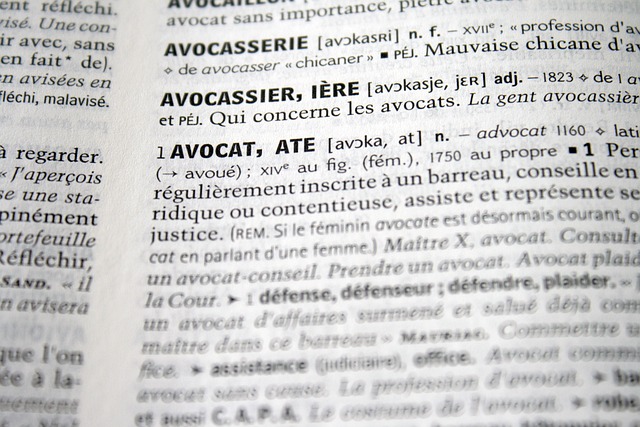Child support obligations are legally enforced responsibilities for parents' financial well-being of dependent children, determined by income, standard of living, and child's needs. Effective resolution involves strategic communication, legal notices, documentation, evidence review, negotiation, and understanding local laws. Avoid court battles by leveraging early consultation with family law specialists and alternative dispute resolution (ADR) methods. Enforce orders through wage garnishments, bank levies, direct deposit, and clear communication for seamless child support disputes resolution.
Navigating child support obligations and disputes can be a complex landscape for parents. This comprehensive guide explores effective legal strategies for both collection and defense in child support cases. From understanding intricate obligations to employing collection methods, this article covers essential tactics. Learn about the role of evidence, documentation, and negotiation in resolving conflicts amicably. Discover how to enforce support orders successfully, ensuring a just resolution for all parties involved in these sensitive matters.
- Understanding Child Support Obligations
- Collection Strategies for Non-Paying Parents
- Legal Defense Against Child Support Claims
- Evidence and Documentation in Disputes
- Negotiation and Alternative Dispute Resolution (ADR)
- Enforcing Child Support Orders Effectively
Understanding Child Support Obligations

Child support obligations are legally binding responsibilities that parents have towards their dependent children. Understanding these obligations is crucial for both parties involved in a child support dispute resolution process. The primary goal is to ensure the financial well-being and stability of the child, regardless of the parents’ relationship status. Legal frameworks dictate that non-custodial parents contribute to the cost of raising the child, which includes expenses related to food, clothing, education, healthcare, and housing.
These obligations are typically established through court orders or agreed-upon arrangements between parents. Both the amount and method of payment are determined based on several factors, such as income levels, standard of living, and the specific needs of the child. Clear communication and adherence to legal guidelines are essential in managing these obligations effectively, fostering a collaborative atmosphere in child support disputes resolution, and ensuring the best interests of the child are met.
Collection Strategies for Non-Paying Parents

When dealing with non-paying parents, collection strategies are crucial for ensuring child support obligations are met. One common approach is to serve legal notices, reminding parents of their duties and potential consequences. This can include wage garnishments, where employers deduct a portion of the parent’s income to cover support payments. Additionally, banks may be contacted to freeze assets or levy on savings accounts. These methods aim to apply financial pressure while also providing a clear path for resolution through legal channels.
Effective communication is another key strategy. Case managers and lawyers can work together to engage non-paying parents, offering them opportunities to negotiate payment plans or discuss potential solutions to underlying issues. By addressing the root causes of non-payment, such as job loss or financial hardship, it becomes possible to reach amicable resolutions without resorting to harsh collection measures. This approach also fosters a sense of cooperation, which can be beneficial in navigating child support disputes resolution.
Legal Defense Against Child Support Claims

When facing child support claims, individuals have legal options to defend against these allegations. A common strategy is to challenge the validity of the claim through thorough documentation and evidence review. This may include verifying income levels, expenses, and the child’s living arrangements to ensure accuracy in calculating support amounts. Legal professionals can assist in gathering and presenting this information to resolve child support disputes effectively.
Additionally, understanding the laws and regulations specific to child support in your jurisdiction is paramount. Legal defenses can be built around interpreting these laws to benefit the accused, questioning the enforcement agency’s methods, or even appealing decisions if substantial errors are found. Early consultation with an experienced attorney specializing in family law can provide guidance tailored to each unique case, offering a strategic approach to navigate and resolve child support disputes resolution successfully.
Evidence and Documentation in Disputes

In child support disputes, evidence and documentation are paramount for a successful resolution. Both parties must present compelling and verifiable information to prove their financial situations, parenting arrangements, and any agreements or court orders related to support obligations. This includes pay stubs, tax returns, bank statements, and official documents like divorce decrees or custody agreements.
Effective documentation involves organizing and presenting these materials in a clear, structured manner. It’s crucial to maintain detailed records of all communication, including letters, emails, and text messages regarding financial matters. Additionally, gathering character references, employment history, and any relevant correspondence can significantly strengthen a case. This robust evidence ensures fairness during the dispute resolution process, facilitating more accurate determinations for both child support collection and defense.
Negotiation and Alternative Dispute Resolution (ADR)

Negotiation and Alternative Dispute Resolution (ADR) offer effective paths for resolving child support disputes, allowing parties to reach mutually agreeable solutions outside of traditional courtroom settings. These methods encourage open communication, fostering a collaborative atmosphere where both parents can express their needs and concerns. Through mediation or arbitration, individuals involved in child support cases can navigate complex issues, such as income discrepancies, custody arrangements, and the best interests of the child, in a more flexible and potentially less contentious manner.
ADR techniques facilitate creative problem-solving, enabling parties to explore options tailored to their unique circumstances. This approach not only streamlines the process but also promotes a sense of ownership over the outcome. By actively participating in negotiations or ADR sessions, parents can better understand each other’s perspectives, fostering a more cooperative environment that may lead to amicable resolutions for all involved, ultimately ensuring a smoother transition regarding child support obligations and payments.
Enforcing Child Support Orders Effectively

Enforcing child support orders effectively involves a strategic approach that combines legal acumen and efficient processes. In many jurisdictions, courts have various tools at their disposal to ensure compliance with support agreements. These can include wage garnishments, bank account levies, and even tax refunds seizures. For parents who fall behind on payments, proactive measures like establishing direct deposit for support payments or setting up payment plans can help prevent disputes from escalating.
A key aspect of effective enforcement is clear communication. Both parties should have a thorough understanding of the terms of the order, including due dates and the consequences of non-compliance. Regular updates and reminders can be sent to ensure parents are aware of their obligations. Moreover, utilizing technology for automated payment tracking and digital notice systems can streamline the process, making it more efficient and reducing the likelihood of child support disputes resolution issues.






